In February, we celebrate Black History Month. In March, we celebrate Women’s History Month. So it only makes sense that, during April, we specifically observe the contributions made to society by Black women in our celebration of Black Women’s History Month. The creator of the month, Sha Battle, was able to get the city of Atlanta to recognize April as Black Women’s History Month in 2016 in an attempt to forge awareness, encouragement, and support of Black women’s contributions to the world. And her movement has only taken off from there.
If you're ready to be educated and inspired, allow us to present to you 8 books about powerful politicians, suffragettes, musicians, wives, mothers, and more that will help you celebrate Black Women’s History Month through the incredible achievements of the women we've highlighted.
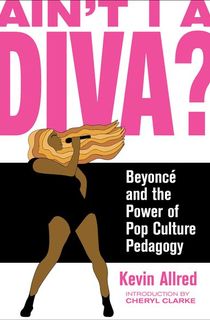
Ain't I a Diva?
Fans went berserk when colleges began announcing that they were hosting Taylor Swift courses, but this wasn’t the first time a celebrity was so popular that people started teaching classes about them. In 2010, Professor Kevin Allred created a controversial “Politicizing Beyoncé” course. Facing widespread acclaim, he later published this book, Ain’t I a Diva, explaining how to build a syllabus around a celebrity.
Using Black popular culture to explore topics like capitalism, the politics of self care, and more, Allred uses Beyoncé’s discography as a catalyst for understanding the words of Black feminists like Kimberlé Crenshaw, Octavia Butler, and Sojourner Truth to make education more accessible.
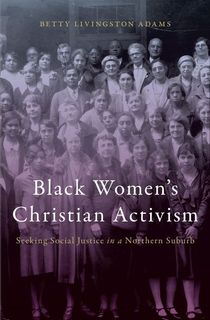
Black Women’s Christian Activism
The difficult thing about exploring Black women’s history, or rather any history for that matter, is that there tends to be a large focus on well-known figures or events. Particularly with Black women’s history, it’s also often explored through an outsider’s lens; i.e. the lens of a Black man or a white woman. But Black Woman’s Christian Activism is not only written by a Black woman (multi-award-winning Betty Livingston Adams) but focuses on the experience of non-elite, working-class Black woman Violet Johnson.
Coming to the New Jersey suburbs in 1897 as one of barely 100 Black residents in a town of 6,000 people, Violet established a Baptist church in an attempt to advocate for African Americans’ equal place in the Christian faith. Adams explores the methods church women used in their fight for social justice, using Violet’s example to track the intersectionalities between politics, religion, race, and gender.
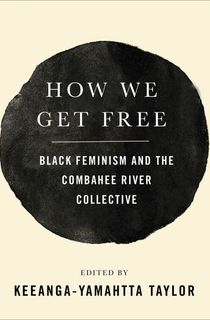
How We Get Free
Winner of the 2018 Lambda Literary Award for LGBTQ nonfiction, How We Get Free is a critically acclaimed piece of feminist literature about the Combahee River Collective. One of the most crucial organizations to come out of the 60s and 70s anti-racist and women’s liberation movements, the Combahee River Collective was a group of radical Black feminists who routinely challenged the status quo and fought for justice. How We Get Free collects interviews and essays from the organization’s founding members and contemporary activists that reflect on the organization’s impact on Black feminism.
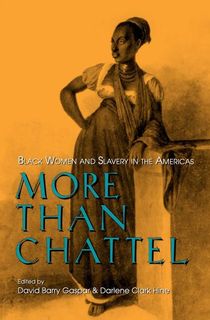
More Than Chattel
More Than Chattel is a powerful collection of essays exploring the slavery experience of Black women in the Americas. It’s commonly known now that the experience of Black men differed greatly from that of Black women; this book studies how Black women had to be more creative in their methodologies for surviving dehumanization and abuse, as they often engaged in less confrontational displays of resistance than the revolts that the men participated in.
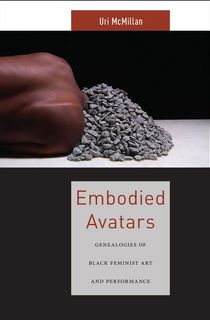
Embodied Avatars
Embodied Avatars is an incredible fusion of performance studies, literary analysis, and visual culture studies that looks at several generations of Black women's performance art from the 19th to the 21st centuries. Looking at multiple artists from Ellen Craft to Nicki Minaj, Embodied Avatars is a powerful rethinking of the intersection of art, performance, and empowerment.
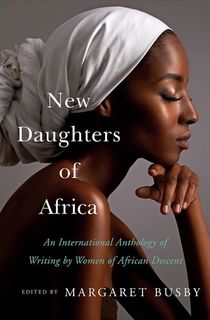
New Daughters of Africa
If this title looks somewhat familiar, then perhaps you read its prequel, Daughters of Africa. New Daughters of Africa is simply a continuation of its sister classic—it’s a curated international collection of fresh and vibrant Black female voices from the past two decades in a wide range of genres, analyzing issues of race, gender, class, independence, freedom, and oppression. New Daughters of Africa is a prolific and moving way to celebrate Black Women’s History Month.
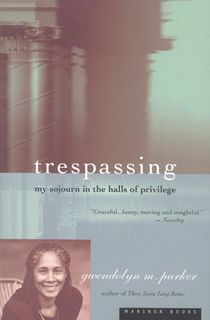
Trespassing
Gwendolyn M. Parker provides a striking and uncommon perspective from a Black woman who has made it to “the top” of corporate America, just to find that racism and sexism still prevail. Coming from a warm, middle-class Black family and then striking big on Wall Street, Parker was able to construct an insightful memoir steeped equally in humor, disappointment, and the realities of corporate America.
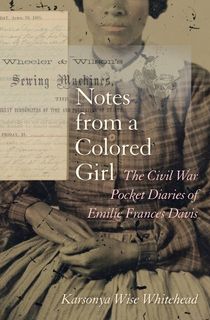
Notes from a Colored Girl
Notes From a Colored Girl is exactly as it sounds: a thorough examination of the life of Emilie Frances Davis through the three pocket diaries she kept from 1863 to 1865. As this is one of very few primary sources written by Black women during this time, not only is this account rare, but it’s also highly educational.
Whitehead discusses Davis’ political and world views, and she also includes a six-chapter reconstruction of Davis’ life so readers have a timeline to work with. Drawing on her knowledge of history, literature, feminist studies, and sociolinguistics, Whitehead contributes edited text that provides insight into women who dwelled in spaces between white elites, Black entrepreneurs, and urban dwellers of multiple races and classes.
This post is sponsored by Open Road Media. Thank you for supporting our partners, who make it possible for The Archive to continue publishing the history stories you love.
